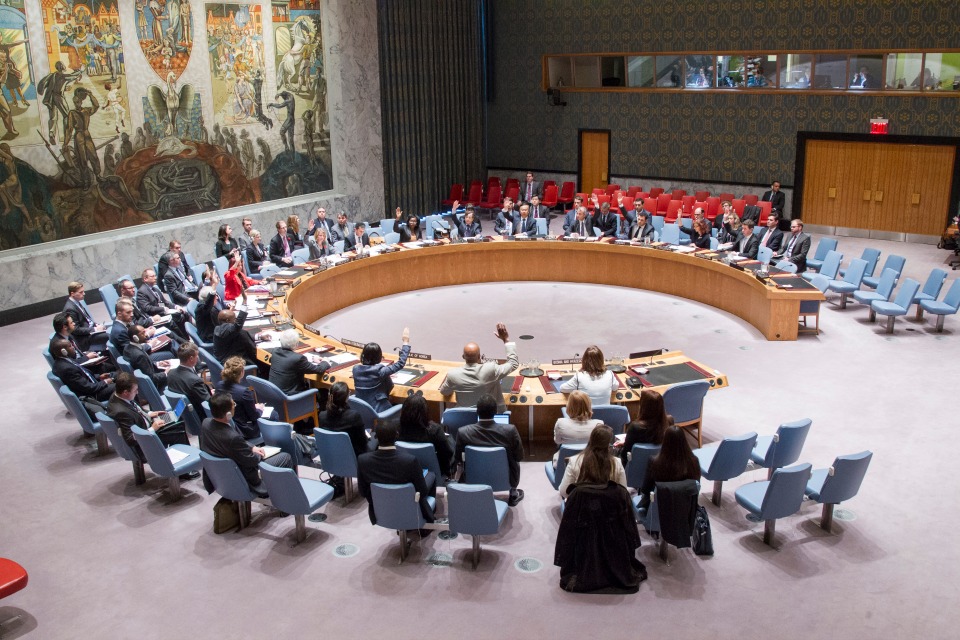"The UK is utterly committed to Bosnia and Herzegovina’s future membership of the European Union and NATO"
Statement by Ambassador Tatham of the UK Mission to the UN, to the UN Security Council meeting on Bosnia and Herzegovina

Madam President,
I would like to welcome High Representative Valentin Inzko back to the Council, and thank him for his twelfth report to the Secretary-General.
Once more, his report highlights honestly and objectively the challenges which Bosnia and Herzegovina continues to face, and the crucial importance of the international community’s engagement in the country. The United Kingdom is grateful to the High Representative for his commitment to the implementation of the Dayton Peace Accords.
The United Kingdom shares the concern of the High Representative at the current situation in Bosnia and Herzegovina. The picture is a depressing one. Not just in respect of this reporting period but over the last four years. It is hard to see this period as anything other than a wasted electoral term, characterised largely by stagnation. An electoral term in which the narrow interests of the political class and short-sighted squabbling over sectional interests have prevailed over a commitment to reform, to good governance and to delivering change which will benefit all citizens.
The statistics paint a bleak picture. A four year parliamentary term in which a total of only fourteen new pieces of legislation were adopted. An unemployment rate standing at around 44%. Youth unemployment at 60%. Too many university graduates failing to find employment in the country, or leaving Bosnia and Herzegovina behind for opportunities elsewhere. This situation is unsustainable. It does a huge disservice to the citizens of Bosnia and Herzegovina. Urgent change is needed.
The elections that took place in October offer an opportunity for progress. The first step must be the swift formation of a reform-minded government. This is crucial if Bosnia and Herzegovina is to break from its current malaise. The challenges facing the country are too great for there to be a lengthy hiatus while its politicians argue over who gets what job. And once a government is formed, it should focus on the policy and priorities that will deliver real change for the population.
The protests that took place in February, and the plenums which sprang up at the same time, demonstrate the depths of public frustration with the status quo. Politicians must heed those clear calls for change. Urgent reforms are needed to improve growth, tackle corruption, and create jobs. The population of Bosnia and Herzegovina deserve a political leadership that strives to deliver on these goals.
The terrible flooding which devastated large parts of the region this year adds to the importance of quick government formation and speedy focus on the immediate challenges facing the country, including work to implement necessary relief for those affected by the flooding.
Madam President
The United Kingdom welcomes the work of the European Union in responding to the population’s socio-economic concerns. In particular, we welcome the excellent work of the EU delegation in Sarajevo, led until recently by Peter Sorensen. Under his leadership, the Compact for Jobs and Prosperity in Bosnia and Herzegovina provided a platform for Bosnian society to engage with its political leaders, and express their desires and frustrations. It is now up to the new Bosnian Government to take the necessary steps to improve the business climate, increase social protection, and promote enterprise.
Madam President,
The United Kingdom is utterly committed to Bosnia and Herzegovina’s future membership of the European Union and NATO. Last week, in Berlin, the Foreign Secretary and the German Foreign Minister announced a UK-German initiative to reinvigorate Bosnia and Herzegovina’s Euro-Atlantic perspective. It is clear that stabilising and stimulating Bosnia’s economy should be a priority. Reforms aimed at doing this should not wait while other issues remain intractable.
Madam President,
There were aspects of the recent elections in Bosnia and Herzegovina which gave us cause for concern. The narrow and divisive nationalism that characterised some leaders’ rhetoric was unacceptable. We are clear that the focus of some on difference and division must end. Leaders must stop thinking along ethnic lines, and start thinking about what will deliver economic progress for the country as a whole.
There is no prospect of Bosnia and Herzegovina joining the European Union as anything other than a single, sovereign state. Public statements about separation or referendums take the country nowhere. They are not going to happen. The United Kingdom has a binding legal responsibility to protect Bosnia and Herzegovina’s territorial integrity.
We remain as committed to that responsibility now as we were 19 years ago when the Dayton Peace Agreement was signed. The redrawing of the map in the Balkans is finished. The road forward involves reform and Euro-Atlantic integration on the basis of the Peace Agreement, as stated in resolution 2183 which we have just adopted.
Madam President,
We remain deeply concerned by the security situation in Bosnia and Herzegovina. It is clear to us that stability is not yet entrenched. February’s protests demonstrated how quickly the population’s discontent can spiral into widespread unrest. Until stability is entrenched, the deterrence provided by EUFOR Althea will remain crucial.
We welcome the UN Security Council’s renewal of EUFOR’s mandate for a further twelve months. We note with disappointment that the resolution was not adopted by consensus this year for the first time in 14 years.
The Russian Federation’s position this year of opposing previously agreed references in the resolution to Bosnia and Herzegovina’s Euro-Atlantic perspective is cynical and deeply regrettable. Nothing has changed in respect of the situation in Bosnia and Herzegovina to justify such an approach.
To adopt such an obstructive position to argue that the Euro-Atlantic perspective was being imposed from outside shows contempt for the established and widespread support in Bosnia and Herzegovina for the country’s Euro-Atlantic direction. It speaks volumes about the zero-sum, “with us or against us” mindset which Russia is applying to this and other foreign policy issues.
Thank you Madam President.